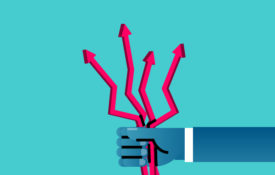-

Scaling Up Savings: More Targeted Policies Could Help the Hardest Hit
Too many Americans can’t afford an emergency expense. Psychological science can help.
-
Why 500,000 COVID-19 Deaths May Not Feel Any Different
Why is it so hard to feel the difference between 400,000 and 500,000 COVID-19 deaths—and how might that impact our decision making during the pandemic? Psychologist Paul Slovic explains the concept of psychic numbing and how humans can often use emotion, rather than statistics to make decisions about risk. ...
-

New Research in Psychological Science
A sample of research on note-taking, visual processing speed in older adults, logical reasoning in monkeys, narcissism in children, counterfactual curiosity, how narratives can shape attitudes toward immigration, motion perception, and using a distanced diary to train for wisdom.
-

Horse Brain and the Human Brain
APS’s Charles Blue talks with APS Founding Member Dr. Janet Jones, author of the book Horse Brain, Human Brain.
-
How Can We Protect Ourselves Against Manipulation, Fake News, and Other Digital Challenges?
In contrast to the offline world, the online world is largely driven by the logic of the attention economy: Users’ attention is a precious currency, and online environments are designed to capture and steer that attention. Yet users and legislators currently have little say in how these environments are regulated and controlled; instead, this responsibility is mostly left in the hands of corporations. How can users respond to these challenges of the digital age and how might the design of the online world be improved?
-
Why Your Brain Feels Broken
... It turns out that many aspects of our pandemic lives could lead to impaired executive functioning, which is a fancy way of describing the mental processes that allow us to plan, organize and remember instructions. “A lot of things need to function well for our memory to work ideally,” said Marie Eckerström, a neuropsychologist at the Sahlgrenska Memory Clinic in Gothenburg, Sweden, who studies cognitive impairment. “Managing too many details can definitely make you feel ‘foggy,’ and make you feel like your memory has declined,” she said.

